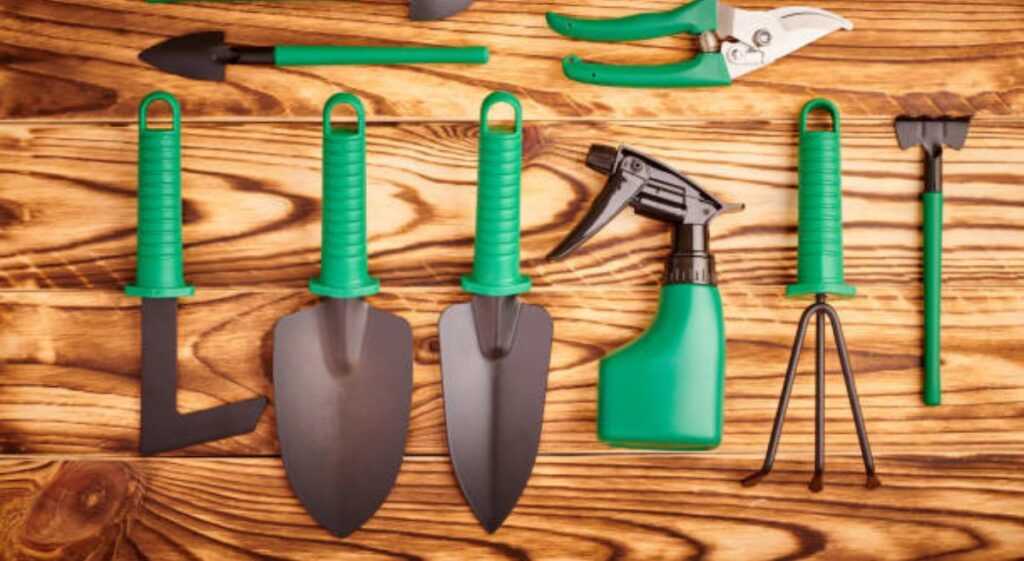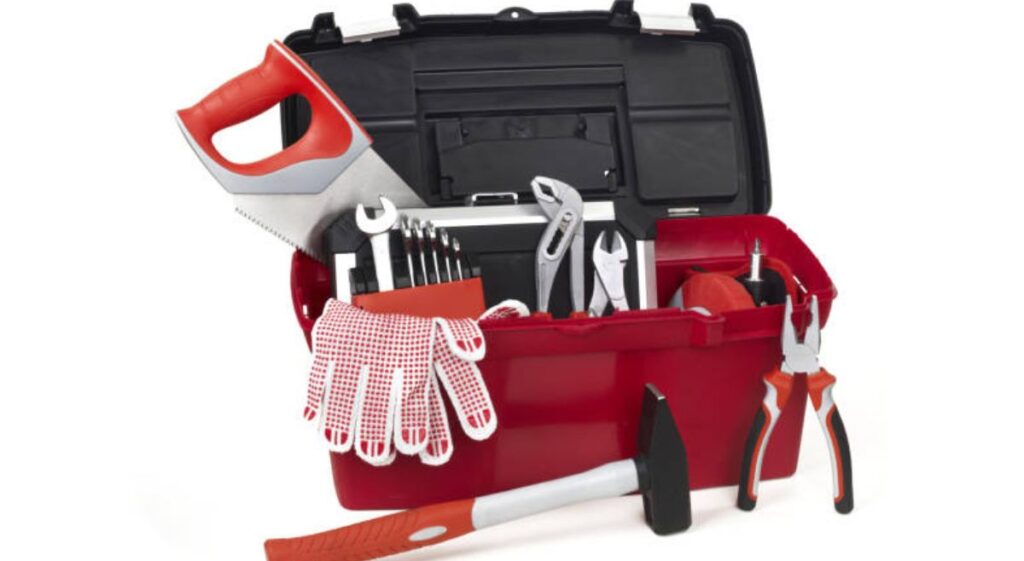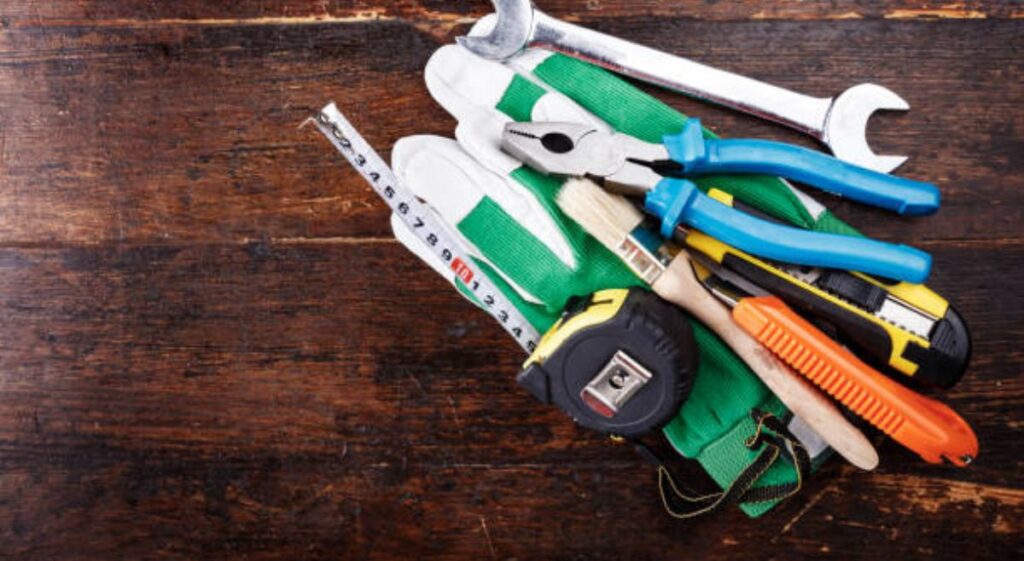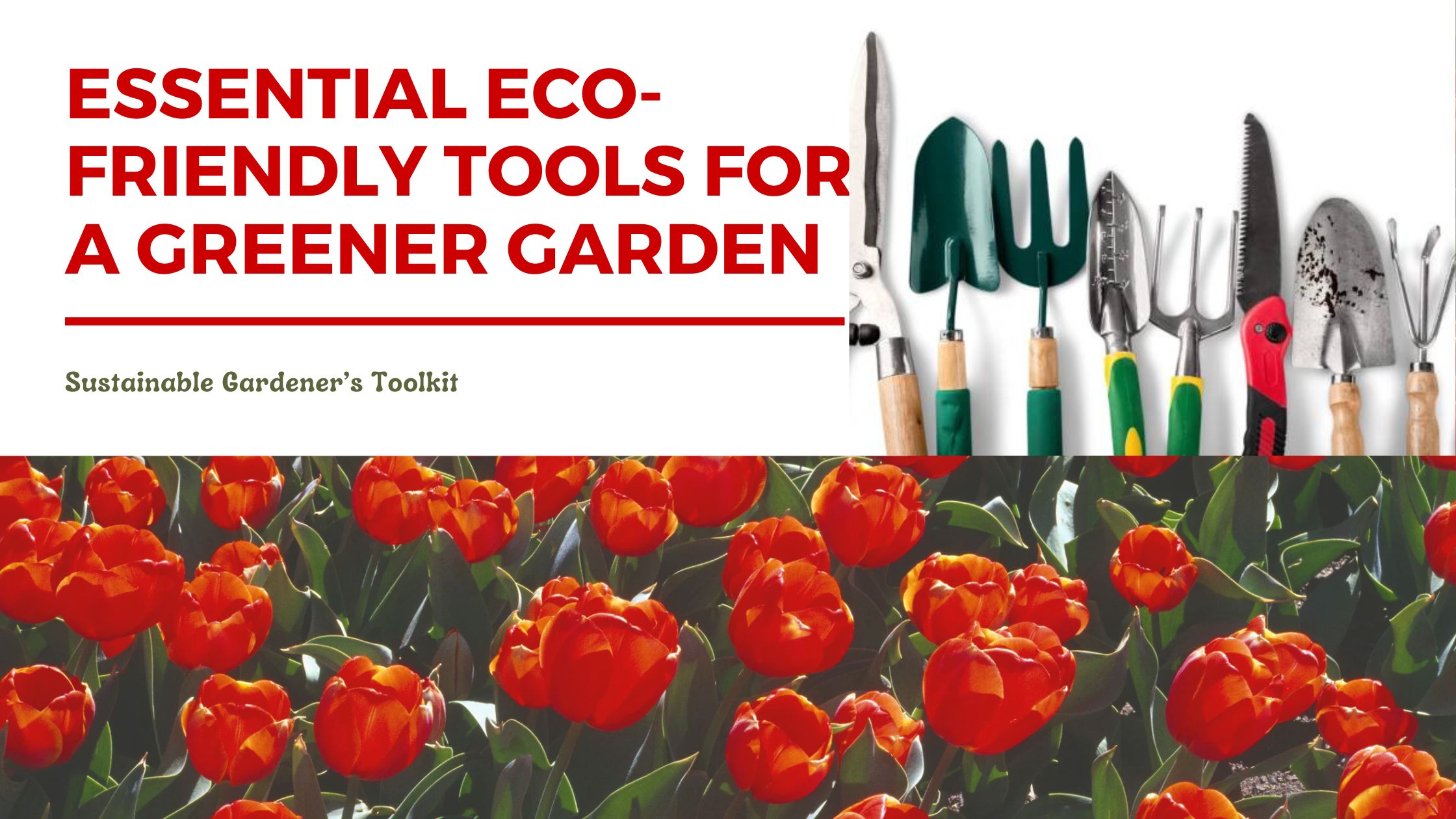Introduction
Sustainable Gardener’s Toolkit: Essential Eco-Friendly Tools for a Greener Garden

As environmental awareness flourishes, an increasing number of gardeners are embracing sustainable practices to cultivate their green spaces while reducing their ecological footprint. One of the most effective ways to create an eco-friendly garden is to select the appropriate tools. This guide will delve into the indispensable tools that every sustainable gardener should possess, enabling them to cultivate a flourishing, verdant oasis..
What are the best Eco-friendly tools for a greener garden?
When selecting eco-friendly gardening tools, consider the materials used, durability, and the environmental impact of manufacturing. Here are some of the best options:
1. Hand Tools from Sustainable Materials:
- Bamboo Hand Tools: Lightweight, durable, biodegradable tools made from a fast-growing, sustainable resource.
- Recycled Metal Tools: Conserve natural resources as they reduce the need for raw materials.
- Wooden Handles: Look for FSC-certified timber handles for sustainable sourcing.
2. Compostable Plant Pots:
- Coconut Coir Pots: Biodegradable pots made from coconut husks that reduce plastic waste.
- Peat-Free Pots: Choose pots made from biodegradable materials like rice hulls or paper pulp, avoiding non-renewable peat.
3. Solar-Powered Garden Tools:
- Solar-Powered Water Pumps: Eco-friendly irrigation systems that reduce reliance on electricity or fossil fuels.
- Solar Garden Lights: Energy-efficient and environmentally friendly for evening gardening or aesthetics.
4. Non-Toxic Garden Gloves:
- Natural Latex Gloves: Biodegradable and free from harmful chemicals, better for the environment and your skin.
- Organic Cotton Gloves: Soft, breathable, and sustainable gloves made from organic cotton.
5. Eco-Friendly Watering Cans and Hoses:
- Recycled Plastic Watering Cans: Reduce landfill waste by opting for cans made from recycled plastic.
- Soaker Hoses: Made from recycled rubber, these hoses conserve water by delivering it directly to plant roots.
6. Manual Tools over Powered Ones:
- Push Reel Mowers: Eco-friendly alternative to gas-powered mowers, reducing emissions and noise pollution.
- Hand Pruners and Shears: Eliminate the need for electricity or gasoline, making them a sustainable choice.
7. Organic Fertilizer Spreaders:
- Compost Spreaders: These tools evenly distribute compost, reducing the need for chemical fertilizers.
- Manual Seed Spreaders: Hand-cranked tools for seed distribution without power.
8. Biodegradable Twine and Labels:
- Hemp Twine: Strong, natural, and biodegradable fiber perfect for tying plants or marking rows.
- Wooden or Recycled Paper Labels: Opt for labels made from renewable materials that break down naturally.
9. Eco-Friendly Pest Control:
- Neem Oil Sprayers: Natural pesticide and fungicide safe for the environment, used with BPA-free or recycled sprayers.
- Insect Traps from Recycled Materials: Reduce the need for chemical pesticides and often made from recycled plastic or metal.
10. Compostable Mulch Mats:
– Coconut Fiber Mats: Suppress weeds and retain moisture, breaking down into the soil over time.
Choosing these tools not only helps maintain a healthy garden but also supports sustainability and reduces your ecological footprint.
Why is sustainable gardening important?
Sustainable gardening offers numerous benefits, contributing to environmental health, resource conservation, and overall well-being. Here are key reasons why it is essential:

Environmental Conservation:
- Soil Health: Sustainable practices like composting and minimal tillage preserve soil fertility and prevent erosion.
- Water Conservation: Techniques such as rainwater harvesting and mulching help conserve water and reduce runoff.
- Biodiversity: Sustainable gardens promote a diverse range of plants, insects, and wildlife, enhancing ecosystem health and resilience.
Resource Efficiency:
- Reduced Chemical Use: Minimizing or eliminating synthetic fertilizers and pesticides reduces the risk of pollution and promotes healthier ecosystems.
- Energy Savings: Sustainable practices like manual tools and solar-powered equipment lower reliance on fossil fuels, decreasing greenhouse gas emissions.
Climate Change Mitigation:
- Carbon Sequestration: Healthy soil and abundant plant life capture and store carbon dioxide, helping mitigate climate change.
- Reduced Greenhouse Gas Emissions: Sustainable practices decrease the use of synthetic chemicals and non-renewable resources, lowering emissions.
Health and Well-being:
- Improved Air Quality: Plants in sustainable gardens filter air pollutants and produce oxygen, enhancing air quality.
- Physical and Mental Health: Gardening offers physical exercise and mental relaxation, reducing stress and promoting well-being.
Economic Benefits:
- Cost Savings: Reducing the need for purchased fertilizers, pesticides, and water lowers gardening costs. Composting and growing your own food can lead to significant savings.
- Local Food Production: Growing your own fruits, vegetables, and herbs supports local food security and reduces reliance on store-bought produce.
Community and Education:
- Community Building: Sustainable gardening often involves shared garden spaces and educational programs, fostering social connections and local engagement.
- Educational Opportunities: Sustainable gardening practices provide opportunities to learn about ecology, conservation, and sustainable living, promoting environmental awareness.
Long-Term Sustainability:
- Future Generations: Practicing sustainable gardening ensures that future generations can enjoy healthy and productive gardens, preserving natural resources and ecological balance.
In summary, sustainable gardening is crucial for protecting the environment, conserving resources, supporting health and well-being, and promoting a sense of community and education.
What materials are considered eco-friendly for gardening tools?
In the pursuit of eco-friendly gardening, the materials used for gardening tools play a significant role. These materials aim to minimize environmental impact and promote sustainability. Let’s explore some commonly considered eco-friendly materials:

1. Bamboo:
- Properties: Renewable, fast-growing, sturdy, lightweight, and biodegradable.
- Use: Handles for hand tools, garden stakes, and plant labels.
2. Recycled Metal:
- Properties: Reduces the need for raw materials, conserves energy, and preserves natural resources.
- Use: Tool heads (e.g., shovels, hoes, pruners), watering cans, and decorative garden elements.
3. Sustainably Sourced Wood:
- Properties: Renewable, biodegradable, and sourced from responsibly managed forests.
- Use: Handles for rakes, shovels, and other hand tools, as well as garden furniture and trellises.
4. Natural Latex:
- Properties: Biodegradable, free from synthetic chemicals, and derived from rubber trees.
- Use: Gardening gloves and rubber grips for tool handles.
5. Hemp:
- Properties: Fast-growing, renewable, and produces strong, durable fibers.
- Use: Twine for tying plants, fabric for gloves and aprons.
6. Coconut Coir:
- Properties: Biodegradable and sustainable, made from the fibrous husk of coconuts.
- Use: Plant pots, mulch mats, and liners for hanging baskets.
7. Recycled Plastics:
- Properties: Reduces landfill waste and conserves resources, though not biodegradable.
- Use: Watering cans, plant pots, garden hoses, and compost bins.
8. Organic Cotton:
- Properties: Grown without synthetic pesticides or fertilizers, sustainable and biodegradable.
- Use: Gloves, aprons, and protective clothing.
9. Biodegradable Plant-Based Plastics:
- Properties: Derived from renewable resources, designed to break down more easily than traditional plastics.
- Use: Seedling trays, plant pots, and garden labels.
10. Recycled Rubber:
– Properties: Made from repurposed tires or other rubber products, reducing waste.
– Use: Garden hoses, soaker hoses, and mulch mats.
11. Recycled Paper:
– Properties: Biodegradable, helps reduce the need for virgin paper, conserves trees, and energy.
– Use: Plant labels, seed packets, and biodegradable pots.
Utilizing gardening tools crafted from these eco-friendly materials not only minimizes environmental impact but also supports sustainable practices in gardening.
Conclusion
To establish a garden that blends aesthetic appeal with environmental responsibility, cultivating a sustainable gardener’s toolkit is paramount. Opting for tools crafted from sustainable materials, implementing water-saving strategies, minimizing waste, and incorporating organic products all contribute to nurturing your garden while preserving the planet. Embracing these eco-friendly tools and practices transforms your garden into a greener and more sustainable sanctuary.
References
- EPA: Sustainable Gardening
- Cornell University: Composting at Home
- USDA: Water Conservation in the Garden
- AGZA: Environmental Impact of Gas vs. Electric Lawn Equipment
- RHS: Biodegradable Pots for Your Garden
- OMRI: What are Organic Fertilizers?
- University of Massachusetts Amherst: Benefits of Mulching Your Garden
- Energy.gov: Guide to Solar-Powered Lighting
